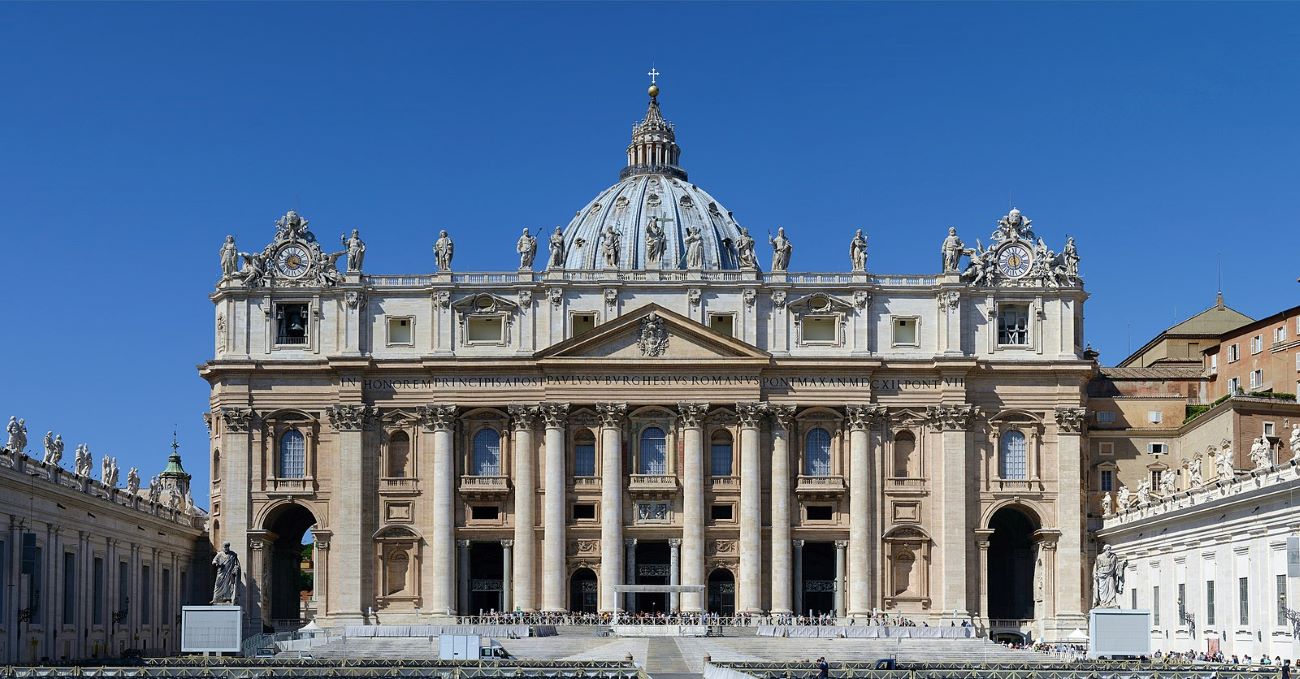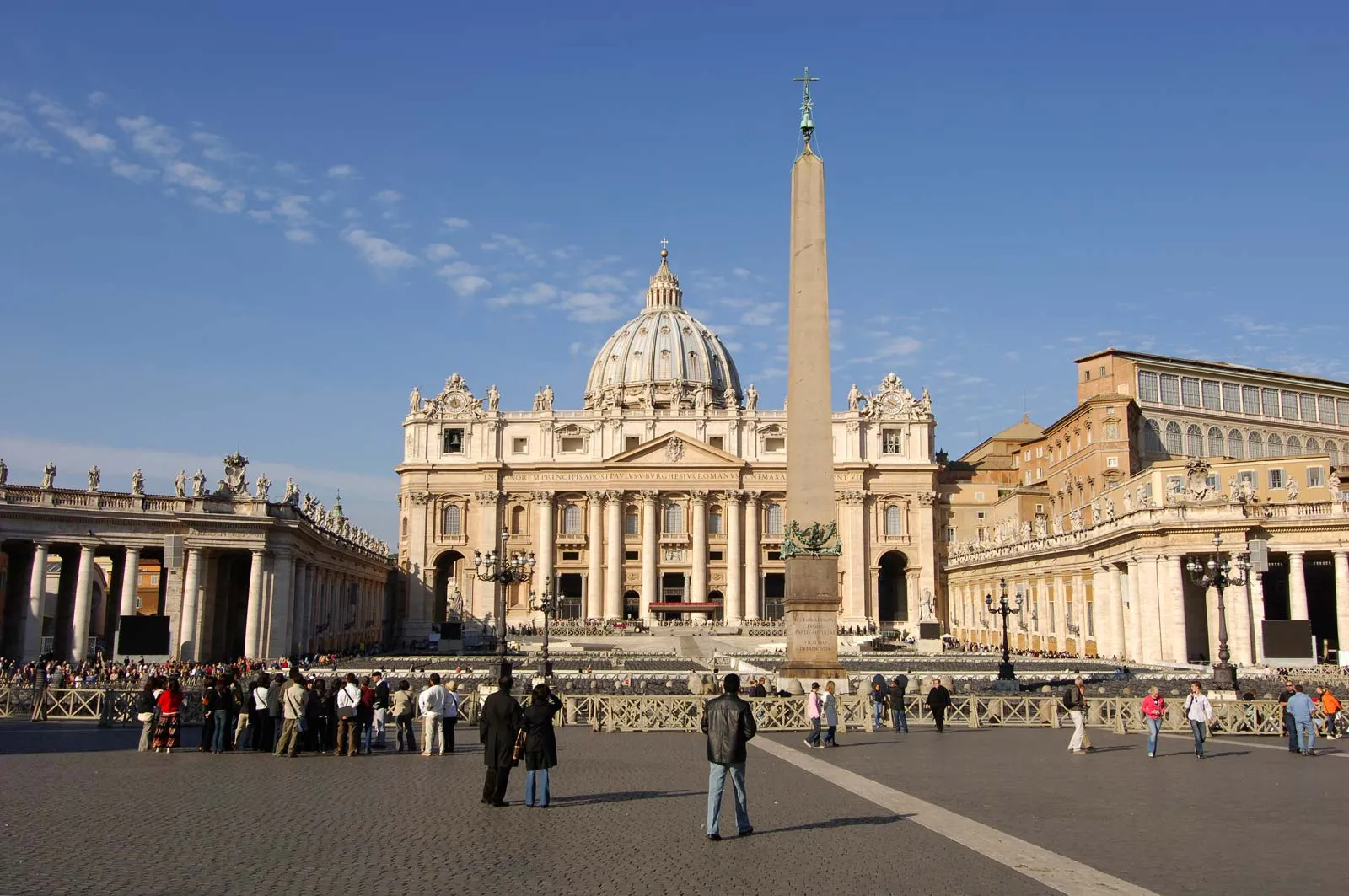Home>Christian Life>What Is Peter’s Great Confession At Caesarea Philippi?


Christian Life
What Is Peter’s Great Confession At Caesarea Philippi?
Published: March 4, 2024
Peter Smith, Editorial Director at Christian.net, combines deep insights into faith, politics, and culture to lead content creation that resonates widely. Awarded for his contributions to religious discourse, he previously headed a major organization for religious communicators, enhancing dialogue on faith's societal impacts.
Discover the significance of Peter's confession at Caesarea Philippi and its impact on the Christian life. Explore the depth of faith and discipleship in this pivotal moment.
(Many of the links in this article redirect to a specific reviewed product. Your purchase of these products through affiliate links helps to generate commission for Christian.net, at no extra cost. Learn more)
Table of Contents
Introduction
What is Peter's Great Confession at Caesarea Philippi? This pivotal moment in the New Testament holds great significance in the Christian faith. It marks a turning point in the disciples' understanding of Jesus' identity and mission. In this article, we will delve into the setting of Caesarea Philippi, explore Peter's recognition of Jesus as the Messiah, discuss the significance of his confession, and examine Jesus' response to this profound declaration. This event provides valuable insights into the nature of Jesus and the role of Peter in the early Christian community.
Read more: What Country Is St. Peter’s Basilica In
The Setting of Caesarea Philippi
Caesarea Philippi was a city located in the northern region of Israel, near the base of Mount Hermon. This area was historically significant, as it was known for its pagan worship and was home to various temples dedicated to the Greek god Pan and the Roman emperor. The city was also situated near a large rock formation, which was believed to be the location of the ancient city of Paneas. The setting of Caesarea Philippi, with its rich history of pagan worship and religious significance, provides a backdrop for the profound events that unfolded there.
The location of Caesarea Philippi holds symbolic importance in the context of Peter's confession. The city's association with pagan deities and imperial cults contrasts sharply with the declaration of Jesus as the Messiah. This juxtaposition serves to emphasize the radical nature of Peter's confession and the transformative power of Jesus' identity. The setting of Caesarea Philippi, with its religious diversity and historical context, adds depth and meaning to the pivotal events that took place there.
Peter's Recognition of Jesus as the Messiah
Peter's recognition of Jesus as the Messiah is a defining moment in the New Testament. When Jesus asked his disciples, "Who do you say I am?" it was Peter who boldly declared, "You are the Messiah, the Son of the living God." This confession was a profound acknowledgment of Jesus' true identity and divine nature. It signified Peter's understanding of Jesus as the long-awaited savior and the fulfillment of Old Testament prophecies.
This declaration by Peter holds immense significance, as it reflects the growing realization among the disciples that Jesus was more than just a teacher or prophet. It marked a pivotal shift in their perception of Jesus, elevating him to the status of the promised Messiah. Peter's confession also demonstrated his unwavering faith and conviction in Jesus' role as the anointed one, chosen by God to bring salvation to humanity.
The depth of Peter's recognition of Jesus as the Messiah is underscored by the cultural and religious context of the time. The title of "Messiah" carried profound implications within Jewish tradition, representing the hope for a deliverer who would establish God's kingdom on earth. By acknowledging Jesus as the Messiah, Peter affirmed his belief in the fulfillment of God's redemptive plan through the person of Jesus Christ.
Furthermore, Peter's confession serves as a pivotal moment in the disciples' spiritual journey, as it solidified their commitment to following Jesus. It set the stage for the unfolding of Jesus' mission and the eventual establishment of the Christian faith. Peter's recognition of Jesus as the Messiah laid the foundation for the transformative impact of Jesus' teachings and the spread of the gospel message.
In essence, Peter's confession at Caesarea Philippi encapsulates the profound revelation of Jesus' true identity and the pivotal role he would play in the salvation of humanity. It represents a watershed moment in the disciples' understanding of Jesus and serves as a cornerstone of Christian belief in the divinity of Christ.
The Significance of Peter's Confession
-
Foundation of the Church: Peter's confession serves as the foundational bedrock upon which the Christian church is built. Jesus' response to Peter, "You are Peter, and on this rock I will build my church," signifies the pivotal role of Peter's confession in the establishment of the Christian community. This acknowledgment by Jesus underscores the significance of Peter's declaration as the cornerstone of the emerging faith community.
-
Authority and Leadership: The significance of Peter's confession extends to the realm of authority and leadership within the Christian tradition. Jesus' bestowal of the keys of the kingdom of heaven to Peter symbolizes his role as a primary leader and authority figure among the disciples. This act of entrusting Peter with the keys represents the authority to proclaim the gospel and make binding decisions within the early Christian community.
-
Unveiling of Divine Revelation: Peter's confession at Caesarea Philippi represents a moment of divine revelation and spiritual insight. It signifies the unveiling of profound truth regarding Jesus' identity and mission. The recognition of Jesus as the Messiah and the Son of the living God reflects a profound understanding of divine revelation and the unveiling of God's redemptive plan through Jesus Christ.
-
Confirmation of Jesus' Identity: Peter's confession serves as a confirmation of Jesus' true identity as the long-awaited Messiah. This declaration affirms Jesus' divine nature and his role as the fulfillment of Old Testament prophecies. It solidifies the understanding of Jesus as the anointed one, chosen by God to bring salvation and redemption to humanity.
-
Transitional Moment in Disciples' Understanding: The significance of Peter's confession lies in its role as a transitional moment in the disciples' understanding of Jesus. It marks a pivotal shift from perceiving Jesus as a teacher or prophet to recognizing him as the promised Messiah. This transformative moment laid the groundwork for the disciples' unwavering commitment to Jesus and the subsequent spread of the Christian faith.
-
Eternal Implications: Peter's confession holds eternal implications for the Christian faith. It signifies the enduring truth of Jesus' identity and the foundational tenet of Christian belief in the divinity of Christ. The significance of Peter's confession reverberates throughout the centuries, shaping the core beliefs of the Christian tradition and serving as a testament to the unchanging nature of Jesus' identity and mission.
In essence, the significance of Peter's confession at Caesarea Philippi extends far beyond a mere acknowledgment of Jesus' identity. It encompasses the foundational principles of the Christian faith, the establishment of leadership within the church, the unveiling of divine revelation, and the enduring truth of Jesus' identity as the Messiah and Son of God. Peter's confession stands as a testament to the transformative power of faith and the enduring impact of Jesus' teachings on the course of human history.
Jesus' Response to Peter's Confession
Jesus' response to Peter's confession at Caesarea Philippi holds profound significance in the New Testament narrative. Upon hearing Peter's declaration, Jesus affirmed the profound nature of Peter's revelation by acknowledging the divine source of his confession. Jesus responded, "Blessed are you, Simon son of Jonah, for this was not revealed to you by flesh and blood, but by my Father in heaven." This response underscores the spiritual insight and divine revelation behind Peter's acknowledgment of Jesus as the Messiah.
Furthermore, Jesus' response to Peter's confession reflects the transformative impact of this pivotal moment. By bestowing the name "Peter" upon Simon, Jesus symbolically affirmed Peter's role as a foundational figure in the establishment of the Christian community. The name "Peter," derived from the Greek word "petros," meaning "rock," signified Peter's foundational role in the formation of the church. Jesus emphasized the enduring significance of Peter's confession by declaring, "And I tell you that you are Peter, and on this rock I will build my church, and the gates of Hades will not overcome it."
In addition to affirming Peter's foundational role, Jesus' response also bestowed upon Peter the keys of the kingdom of heaven, signifying his authority and leadership within the early Christian community. Jesus stated, "I will give you the keys of the kingdom of heaven; whatever you bind on earth will be bound in heaven, and whatever you loose on earth will be loosed in heaven." This act of entrusting Peter with the keys symbolized his authority to proclaim the gospel and make authoritative decisions within the emerging Christian church.
Moreover, Jesus' response to Peter's confession at Caesarea Philippi underscores the profound nature of divine revelation and spiritual insight. It signifies the unveiling of truth regarding Jesus' identity and mission, highlighting the role of God's divine intervention in revealing the profound reality of Jesus as the Messiah and the Son of the living God. Jesus' response serves as a testament to the divine orchestration behind Peter's confession and the unfolding of God's redemptive plan through Jesus Christ.
In essence, Jesus' response to Peter's confession at Caesarea Philippi encapsulates the profound significance of this pivotal moment in the New Testament narrative. It underscores the spiritual insight and divine revelation behind Peter's acknowledgment of Jesus as the Messiah, affirms Peter's foundational role in the establishment of the Christian community, bestows upon him the keys of the kingdom of heaven, and emphasizes the profound nature of divine revelation in unveiling the truth of Jesus' identity and mission.
Read more: Who Designed St. Peter’s Basilica
Conclusion
The great confession of Peter at Caesarea Philippi stands as a pivotal moment in the New Testament, marking the profound recognition of Jesus as the Messiah and the Son of the living God. The setting of Caesarea Philippi, with its historical and religious significance, provided a poignant backdrop for this transformative event. Peter's bold acknowledgment of Jesus' true identity laid the foundation for the establishment of the Christian faith and the enduring impact of Jesus' teachings on human history. The significance of Peter's confession reverberates throughout the centuries, shaping the core beliefs of the Christian tradition and serving as a testament to the unchanging nature of Jesus' identity and mission. Jesus' response to Peter's confession affirmed the spiritual insight and divine revelation behind this pivotal moment, underscoring the enduring significance of Peter's foundational role in the establishment of the Christian community. In essence, Peter's great confession at Caesarea Philippi stands as a testament to the transformative power of faith and the enduring impact of Jesus' teachings on the course of human history.














